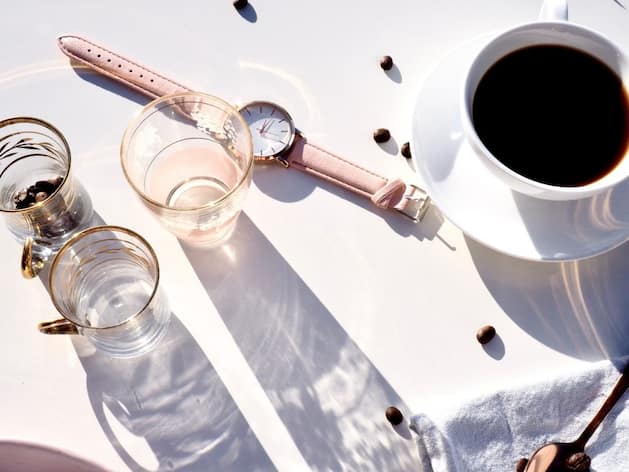One study examined the link between caffeine consumption and depression using a larger survey of diet and health in the United States. The results suggest that coffee may have a potential complementary role in alleviating depression.
Previous studies have examined a link between caffeine consumption and depression. But from or up to what amount is caffeine a relevant factor? The present study examined this using data from a larger survey of nutrition and health (2017 – 2018 National Health and Nutrition Examination Survey, NHANES) in the USA.
Participants were divided into those with and without depression. The degree of depression was determined using the PHQ-9 questionnaire (9-item Patient Health Questionnaire). As part of the NHANES nutrition survey, caffeine intake was recorded within the last 24 hours. The level of education, sleepiness, age, marital status, origin/skin color, smoking, gender and leisure activities were considered as possibly relevant factors.
In total, data from 3263 patients aged 20 and over were analyzed. Participants were divided into those without depression (n = 3039) and those with depression (n = 244). Compared to patients without depression, depressed patients were more likely to be women, younger, reported more daytime sleepiness on average, had either a failed marriage or no marriage, had no higher educational level, were more likely to smoke, and consumed less caffeine.
On average, patients with a higher PHQ-9 score or a PHQ-9 of 10 or more (as a threshold value for depression) consumed less caffeine than other respondents. The study results indicated a negative association between caffeine consumption and depression (odds ratio, OR: 0.998; 95% confidence interval, CI: 0.9967 – 0.9991; p < 0.001). However, if the caffeine intake exceeded 90 mg, no significant connection with the depression could be determined. The association was also only in non-smokers and in people who were never married. The effect was particularly clear in people without a higher level of education and in women.
The cut-off for depression-effective caffeine levels seen here is about one large cup of coffee (brewed) or about three cups of green tea, the authors cite from a US food nutrient database.
The study therefore points to caffeine – in a dose of up to one large cup of coffee per day – as a possible additional contribution to the relief of depression. However, further studies are needed to substantiate this purely observational study and any relevant factors.
© All rights: DeutschesGesundheitsPortal / HealthCom
Quelle: Bao J, Li P, Guo Y, Zheng Y, Smolinski M, He J. Caffeine is negatively associated with depression in patients aged 20 and older. Front Psychiatry. 2022 Dec 1;13:1037579. doi: 10.3389/fpsyt.2022.1037579. PMID: 36532163; PMCID: PMC9751366.
Foto: Pexels/ Jess Bailey Designs
Day 14 in the jungle camp finally offered a good deal of drama. Thanks to Gigi, Papis and Lucas. Claudia won’t have to deal with the aftershock because she’s out. The show to read in the FOCUS online ticker protocol.
Prince Andrew has been forced to step down from his royal duties following an abuse scandal. But he would like to contest the comparison with Virginia Giuffre and he also supposedly has an ace up his sleeve for a better image: a new “development” next month should help.
Here you will find the current Eurojackpot winning numbers for Friday, January 27, 2023: Today, Friday, there are 93 million euros in the pot. You can find out the current winning numbers here at FOCUS online.
The original of this article “Study: Coffee can relieve depression” comes from Lady.Health.















